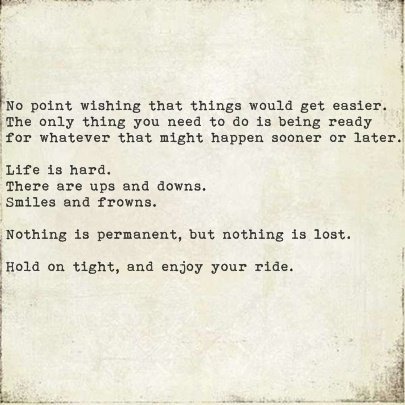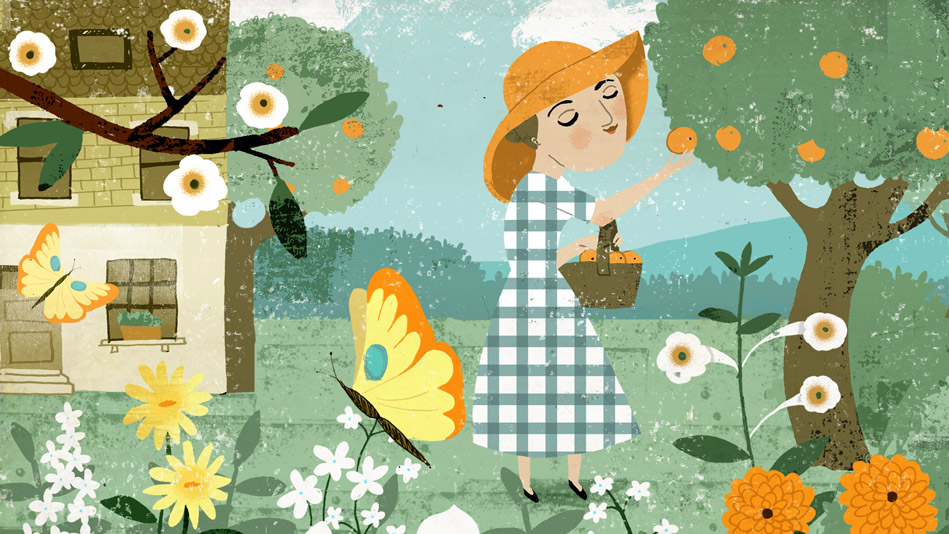How We Meet Our Spouses
As 'How I Met Your Mother' ends, here are the real-life lessons of Ted's romantic odyssey.












Love Lessons
Love Makes it Impossible to Sleep
You Can Be Your Own Worst Enemy
Love Isn't Easy
Lost Love Can Be Haunting
Love Really is All You Need
Being in Love Means You - Never Fight Alone
You Have To Be Willing To Take a ChanceLove Gone Wrong is a Kind of Prison
A Broken Heart Leaves ScarsLove Never Really Fades



1: Envision the relationship you want to be in:
“Until you are able to see yourself living the life that you truly want, it will be difficult for you to create it.” “The One” offers a number of concrete exercises — such as creating a collage of lifelong dreams and writing the story of one’s life as if it were a fairy tale that ends with all of your wishes fulfilled — that helps the reader identify his or her personal vision of a truly satisfying relationship. “It was fun to imagine the ideal life that I wanted for myself,” Carly C. says. “I enjoyed thinking about my ‘dream’ soul mate, and then relaxing and letting it go rather than struggling and feeling anxious about whether he would ever enter my life.”
2: Release any toxic ties and let go of the past:
Relationships we form “have the capacity to nurture and inspire our growth” or to “block the experience and expression of love in our lives.” Identify “toxic ties” as attachments “that cause us to lose personal power.” These attachments can include prior romantic partners, friends or relatives, and when we don’t release these “toxic ties,” they can prevent us from moving forward with our love lives and keep us from attracting a partner who nurtures and supports us. When you “Practice” “Releasing Toxic Ties,” journal about questions they may have regarding this issue, including:
3: Set an intention for your life:
We can create a “climate in which love can ‘miraculously manifest’” by following the first three steps for setting an intention:

Love. We all have been in love at leastSigns you are in
Love

There is a difference between a "Nice Guy" and a "Good Man," as was recently brought to my attention. In a previous blog, I tried to pinpoint the characteristics of a "Nice Guy" (since I've been successful at bypassing him in life thus far), but a "Good Man" goes above and beyond our general idea of Mr. Nice Guy. His chivalry and actions, rather than words (or promises), define him as a quality human being. He's like the Platinum Card of men created in this world, and I would love to get an upgrade from my poor credit history.
So, here is my updated version of the ideal man (although, even a "nice guy" would be an upgrade from the emotionally unavailable men I keep getting issued with):
A Good man:
I want to dedicate this to a good man who, with a few short messages, breathed life back into my sails. With his warmth and compassion, he showed me that I don't miss being with someone so much as I long for the feeling of being thought of, cared about, and appreciated, most of all. The cinders are still smoldering in my heart, and I now know that I should never give up hope. Love is the most precious gift of this life. The fire in my heart will burn again. Thanks to all the good men out there who make a woman feel like a lady.
To all the other hopeful romantics: don't ever give up hope. As long as you're still breathing, life is forever changing before your eyes. You never know what tomorrow will bring.
Girls are taught a lot of stuff growing up: If a guy punches you he likes you. Never try to trim your own bangs. And someday you will meet a wonderful guy and get your very own happy ending.
Every movie we see, every story we're told implores us to wait for it, this third act twist: the unexpected declaration of love, the exception to the rule.
But sometimes we're so focused on finding our happy ending, we don't learn how to read the signs. How to tell the ones who want us from the ones who don't, the ones who will stay and the ones who will leave.
And maybe this happy ending doesn't include a wonderful guy. Maybe it's you, on your own, picking up the pieces and starting over. Freeing yourself up for something better in the future. Maybe the happy ending is just moving on.
Or maybe the happy ending is this: Knowing that all the unreturned phone calls and broken-hearts, through the blunders and misread signals, through all the pain and embarrassment... you never, ever, gave up hope.

First and foremost, love is an emotion, a momentary state that arises to infuse your mind and body alike. Love, like all emotions, surfaces like a distinct and fast-moving weather pattern, a subtle and ever-shifting force. As for all positive emotions, the inner feeling love brings you is inherently and exquisitely pleasant — it feels extraordinarily good, the way a long, cool drink of water feels when you’re parched on a hot day. Yet far beyond feeling good, a micro-moment of love, like other positive emotions, literally changes your mind. It expands your awareness of your surroundings, even your sense of self. The boundaries between you and not-you — what lies beyond your skin — relax and become more permeable. While infused with love you see fewer distinctions between you and others. Indeed, your ability to see others — really see them, wholeheartedly — springs open. Love can even give you a palpable sense of oneness and connection, a transcendence that makes you feel part of something far larger than yourself.
Perhaps counterintuitively, love is far more ubiquitous than you ever thought possible for the simple fact that love is connection. It’s that poignant stretching of your heart that you feel when you gaze into a newborn’s eyes for the first time or share a farewell hug with a dear friend. It’s even the fondness and sense of shared purpose you might unexpectedly feel with a group of strangers who’ve come together to marvel at a hatching of sea turtles or cheer at a football game. The new take on love that I want to share with you is this: Love blossoms virtually anytime two or more people — even strangers — connect over a shared positive emotion, be it mild or strong.
Love is a momentary upwelling of three tightly interwoven events: first, a sharing of one or more positive emotions between you and another; second, a synchrony between your and the other person’s biochemistry and behaviors; and third, a reflected motive to invest in each other’s well-being that brings mutual care.
This is no ordinary moment. Within this mirrored reflection and extension of your own state, you see far more. A powerful back-and-forth union of energy springs up between the two of you, like an electric charge.
Odds are, if you were raised in a Western culture, you think of emotions as largely private events. you locate them within a person’s boundaries, confined within their mind and skin. When conversing about emotions, your use of singular possessive adjectives betrays this point of view. You refer to ‘my anxiety,’ ‘his anger,’ or ‘her interest.’ Following this logic, love would seem to belong to the person who feels it. Defining love as positivity resonance challenges this view. Love unfolds and reverberates between and among people — within interpersonal transactions — and thereby belong to all parties involved, and to the metaphorical connective tissue that binds them together, albeit temporarily. … More than any other positive emotion, then, love belongs not to one person, but to pairs or groups of people. It resides within connections.
People who suffer from anxiety, depression, or even loneliness or low self-esteem perceive threats far more often than circumstances warrant. Sadly, this overalert state thwarts both positivity and positivity resonance. Feeling unsafe, then, is the first obstacle to love.
Love’s second precondition is connection, true sensory and temporal connection with another living being. You no doubt try to ‘stay connected’ when physical distance keeps you and your loved ones apart. You use the phone, e-mail, and increasingly texts or Facebook, and it’s important to do so. Yet your body, sculpted by the forces of natural selection over millennia, was not designed for the abstractions of long-distance love, the XOXs and LOLs. Your body hungers for more.
True connection is one of love’s bedrock prerequisites, a prime reason that love is not unconditional, but instead requires a particular stance. Neither abstract nor mediated, true connection is physical and unfolds in real time. It requires sensory and temporal copresence of bodies .The main mode of sensory connection, scientists contend, is eye contact. Other forms of real-time sensory contact — through touch, voice, or mirrored body postures and gestures — no doubt connect people as well and at times can substitute for eye contact. Nevertheless, eye contact may well be the most potent trigger for connection and oneness.
Physical presence is key to love, to positivity resonance.
Love is a many-splendored thing. This classic saying is apt, not only because love can emerge from the shoots of any other positive emotion you experience, be it amusement, serenity, or gratitude, but also because of your many viable collaborators in love, ranging from our sister to your soul mate, your newborn to your neighbor, even someone you’ve never met before.
At the level of positivity resonance, micro-moments of love are virtually identical regardless of whether they bloom between you and a stranger or you and a soul mate; between you and an infant or you and your lifelong best friend. The clearest difference between the love you feel with intimates and the love you feel with anyone with whom you share a connection is its sheer frequency. Spending more total moments together increases your chances to feast on micro-moments of positivity resonance. These micro-moments change you.
Whereas the biological synchrony that emerges between connected brains and bodies may be comparable no matter who the other person may be, the triggers for your micro-moments of love can be wholly different with intimates. The hallmark feature of intimacy is mutual responsiveness, that reassuring sense that you and your soul mate — or you and your best friend — really ‘get’ each other. This means that you come to your interactions with a well-developed understanding of each other’s inner workings, and you use that privileged knowledge thoughtfully, for each other’s benefit. Intimacy is that safe and comforting feeling you get when you can bask in the knowledge that this other person truly understands and appreciates you. You can relax in this person’s presence and let your guard down. Your mutual sense of trust, perhaps reinforced by your commitments of loyalty to each other, allows each of you to be more open with each other than either of you would be elsewhere.








